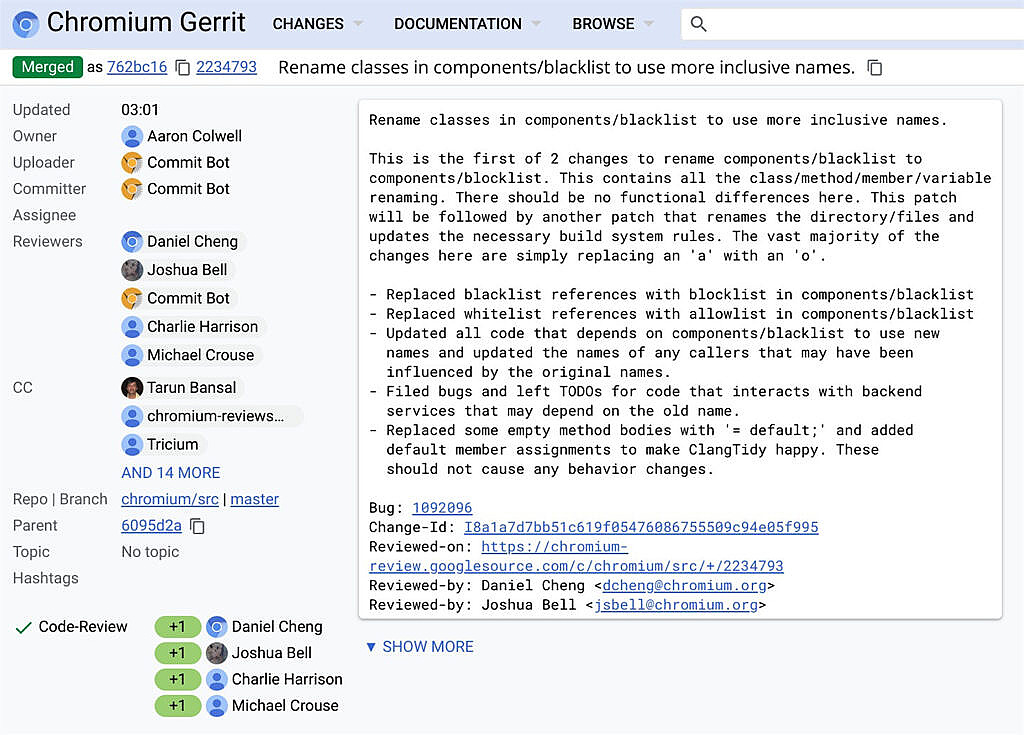Command Palette
Search for a command to run...
The Racial Equality Movement Accelerates Github and Go to Abolish Blacklist naming. Is Technology Politically Correct?

Since the George Floyd incident, the Black Lives Matter movement to fight for the rights of African Americans in the United States and around the world has intensified, expanding from offline marches to the technology circle.
On May 26, 2020, in Minneapolis, Minnesota, four American police officers used violent law enforcement, resulting in George Floyd suffocating to death.
To date, nearly 100 cities across the United States have seen protests, marches, and even violent activities such as looting and smashing.
Now, this trend of equal rights has also spread to the technology circle, giving rise to many movements.
GitHub: Change Master to Trunk
GitHub https://github.com/cli/cli/issues/929
Statement (first published on May 15):

Our team would like to change the default branch name from "master" to "trunk" because "master" is associated with slavery in some contexts.
(Although we know that "master" used in git does not necessarily have this meaning, we don't want to be ambiguous here.)
This issue is currently closed.
Chrome, Go: Abolish Blacklist/Whitelist
Since October last year, Chrome (the open source project Chromium) has included guidelines on how to write "race-neutral" code in its official guidelines.

The manual clearly states that Chrome and Chromium developers,The terms "Blacklist" and "Whitelist" should be avoided.
Instead, use the neutral terms "Blocklist" and "Allowlist".

Golang developers also made similar commits, believing that terms such as whitelist/blacklist and master/slave have caused harm to some people.
Redis: Controversy over master/slave in 2018
This is not the first time that the name has been changed for racial neutrality reasons. As early as 2018, Redis made an adjustment.
Redis's master-slave mode originates from a concept of the same name in MySQL and is used to synchronize data.
In a specific scenario,The term master-slave does not carry any emotional connotations and only refers to the master-slave relationship. However, many developers do not think so.They believe that after Redis released 5.0 RC5, Redis is still using "master" and "slave" in the update log and hope that the Redis author can modify the description of the master-slave architecture in Redis.
According to Redis author antirez, this is not the first time that developers have made such a request, but this time the number of people who responded is greater.
antirez initiated an anonymous poll on Twitter, hoping to collect everyone's opinions.

The results show that more than half of the people want to modify the description of master-slave.
Taking sides on Twitter: Do you mind changing the name?
In the past few days, a netizen on Twitter launched a campaign, calling on more technical organizations and companies to modify the "Blacklist" and "Whitelist" as well as "master" and "slave".

It received a lot of support, but also a lot of doubts and ridicule.
The main voices of support believe that the naming is indeed inappropriate, especially now that racial issues have come to the surface, and that one should express one's stance and support through this kind of means.
The doubts and ridicules also have their own reasons. People believe that technology itself has nothing to do with stance, and these names are simply based on everyone's cognitive habits.
Whether it is Black/White or Slave/Mster, it does not represent racial discrimination.

Netizen @Doug Gorley believes:
In the past two years, I have also changed Master/Slave to Leader/Replica.But in fact, I have never considered the connotation of Blacklist/Whitelist.
I don't know of any good alternatives. Passlist/Blocklist or Golist/Stoplist or Greenlist/Redlist?

Some netizens even ridiculed this practice as unnecessary and only for show:
When I play chess, I always let black go first and then immediately concede defeat. While this is not a good game, it is a symbolic gesture that will ultimately address the issue of racism.
-- over--








